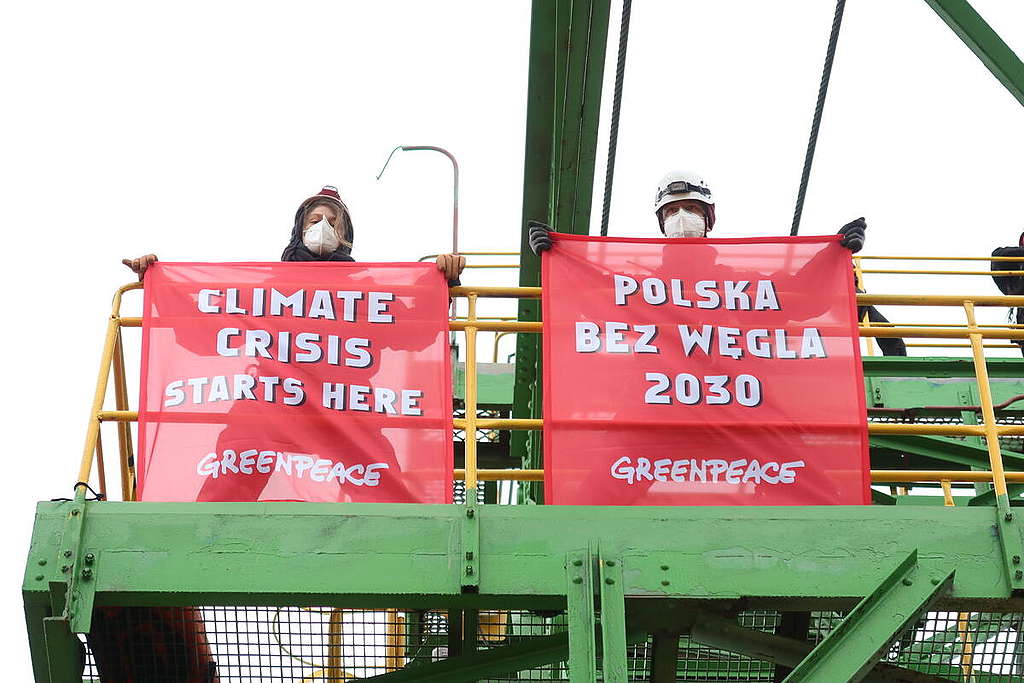Poland’s Ministry for Climate and Environment has approved a 21-year licence extension for the country’s Turów coal mine, burdening the Bogatynia region with an industry without a future. The licence was issued despite Turów having been the focus of legal proceedings in Poland and complaints to the European Commission. Turów supplies coal to the nearby PGE-owned Turów lignite power plant which emitted over 5.8 million tonnes of CO2 in 2020. The Polish government wants to operate both until 2044, a move that is incompatible with Poland’s climate targets.

The PGE-owned mine is wedged between communities in Czechia, Germany and Poland and is causing structural damage to nearby housing. Its new licence is based on a poorly executed environmental impact assessment that forecasts water depletion caused by the mine to be less in 2044 than it already is today. Polish, Czech and German NGOs are mounting a legal challenge against the licence, citing the damage the mine is doing to people’s drinking water, the nearby Miedzianka River, and the climate.
“The decision to extend Turów’s licence to 2044 shows just how detached our Ministry of Climate and Environment is from reality. We are living through a time of war and a cost of living crisis, both driven by fossil fuels. Poland should want to invest in cheap, peacebuilding renewables that ensure permanently affordable energy and protect the climate, not in fossil fuels like coal that damage people’s water supplies and houses,” said Anna Meres, Climate Campaign Coordinator at Greenpeace Poland.
„People and businesses in Poland are already paying eye-wateringly high energy bills because the government refuses to properly invest in renewable energy. That’s why heat pump sales are up 120 percent and people are rapidly fitting solar panels to their roofs – they realise this is the best way to bring down their bills. Sadly, Bogatynia has been sold a scam. The region has already lost out on over EUR 210 million in EU just transition funding because PGE refuses to make plans to close Turów. At the same time, nobody will buy electricity from Turów Power Plant when renewables offer the same but several times cheaper,” said Radosław Gawlik, president of the EKO-UNIA Ecological Association.
“Solar and wind produce more of the EU’s electricity than coal or gas. Even this winter in the midst of our worst energy crisis, we’ve burnt less coal to generate electricity than we did the previous winter. Yet Polish authorities have granted a 21-year licence extension to a coal mine that cannot operate past 2030 under EU climate goals, and already makes no economic sense given how cheap renewables are. This decision can only be understood as a calculated choice to put the interests of a coal company ahead of those of ordinary people, and climate protection,” said Michal Zablocki, campaigner at Europe Beyond Coal.
